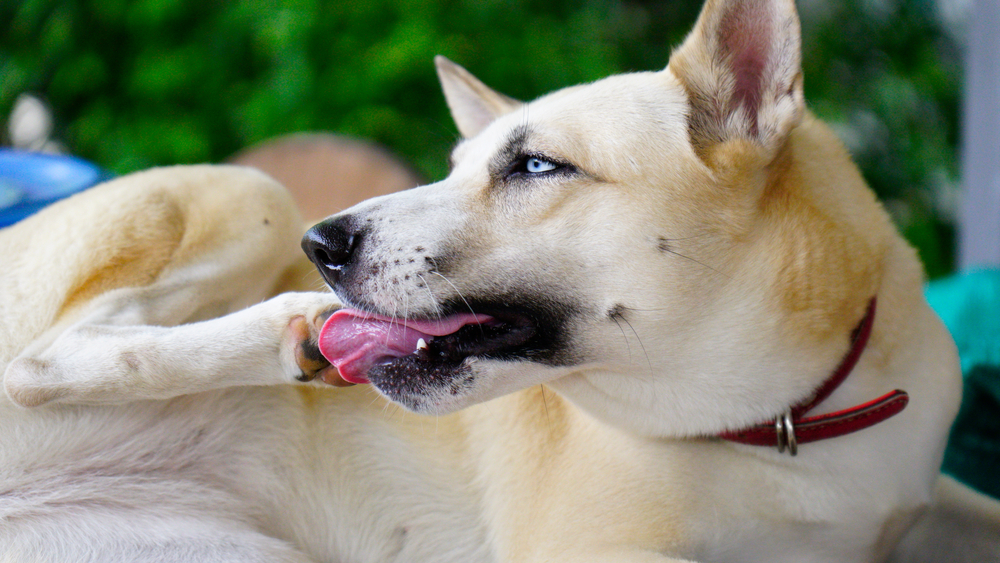Fall Allergies in Dogs: Alleviating Your Pet’s Symptoms
People are not the only ones who suffer from seasonal allergies. Our pets can also experience discomfort as the weather changes. If you have an unlucky dog who suffers from seasonal allergies, don’t worry. Your friends at Oakland Veterinary Referral Services are here to help you understand and alleviate fall allergies in dogs.

Fall Allergies in Dogs
When people have seasonal allergies, they often have red, itchy eyes, runny noses, and problems sneezing and coughing. Dogs and cats usually experience itchy skin. Although the itchiness will often develop around the feet or ears, it can show up anywhere on the body. Repeated scratching at these areas could cause an infection. This is because the disruption to the normal bacteria can create a breeding ground for bad bacteria and yeast to develop and spread.
Symptoms of Fall Allergies in Dogs
While allergic reactions most often present as itchiness in pets, there are a few other symptoms to look out for. They include:
- Skin irritation or redness
- Strange odor coming from the skin
- Hot spots or bald spots
- Hives (will sometimes seem crusty or scabby)
- Inflammation, waxy discharge, redness, or odor from the ears
- Hair loss around the face
- Red, itchy eyes or runny nose
- Swollen or red feet that might have a distinctive odor
If you notice any of these symptoms in your pet, it is time to call your veterinarian for an allergy check.
Causes of Fall Allergies in Dogs
While pets can have allergic reactions to a wide range of allergens, there are a few common ones that tend to affect a large number of them. These include:
- Plants like sagebrush, pigweed, goldenrod, and lamb’s quarters
- Pollen
- Mold
- Flea bites
- Food
Working with your veterinarian to find the source of the allergy will be the best way to find an effective treatment for your pet. If the allergen is in the food, for example, a dietary change can provide immediate relief for your furry friend. If the allergen is something you can’t avoid (like pollen in the air), you will need to consider treatment.
Treating Fall Allergies in Dogs
Depending on the severity of your pet’s allergy symptoms, the vet might recommend a few different treatment options. If your dog has the occasional allergic reaction, the vet might recommend antihistamines or steroids. Please only use these and other medications after speaking with your veterinarian.
There are also special shampoos that can help with skin irritation. Using them regularly will alleviate some of the discomfort on the skin. If your pet is suffering badly with allergies, there are immunosuppressants and desensitization therapies that can help. Talk to your veterinarian about your pet’s symptoms to find the best treatment option for fall allergies in dogs.
If your pet is suffering from extreme allergies, the dermatology and allergy services at OVRS can provide relief. Our Dermatologists will thoroughly research your pet’s issues to find the cause and the right treatment. For more information on our specialty services or to schedule an appointment, please call (248) 334‑6877.


